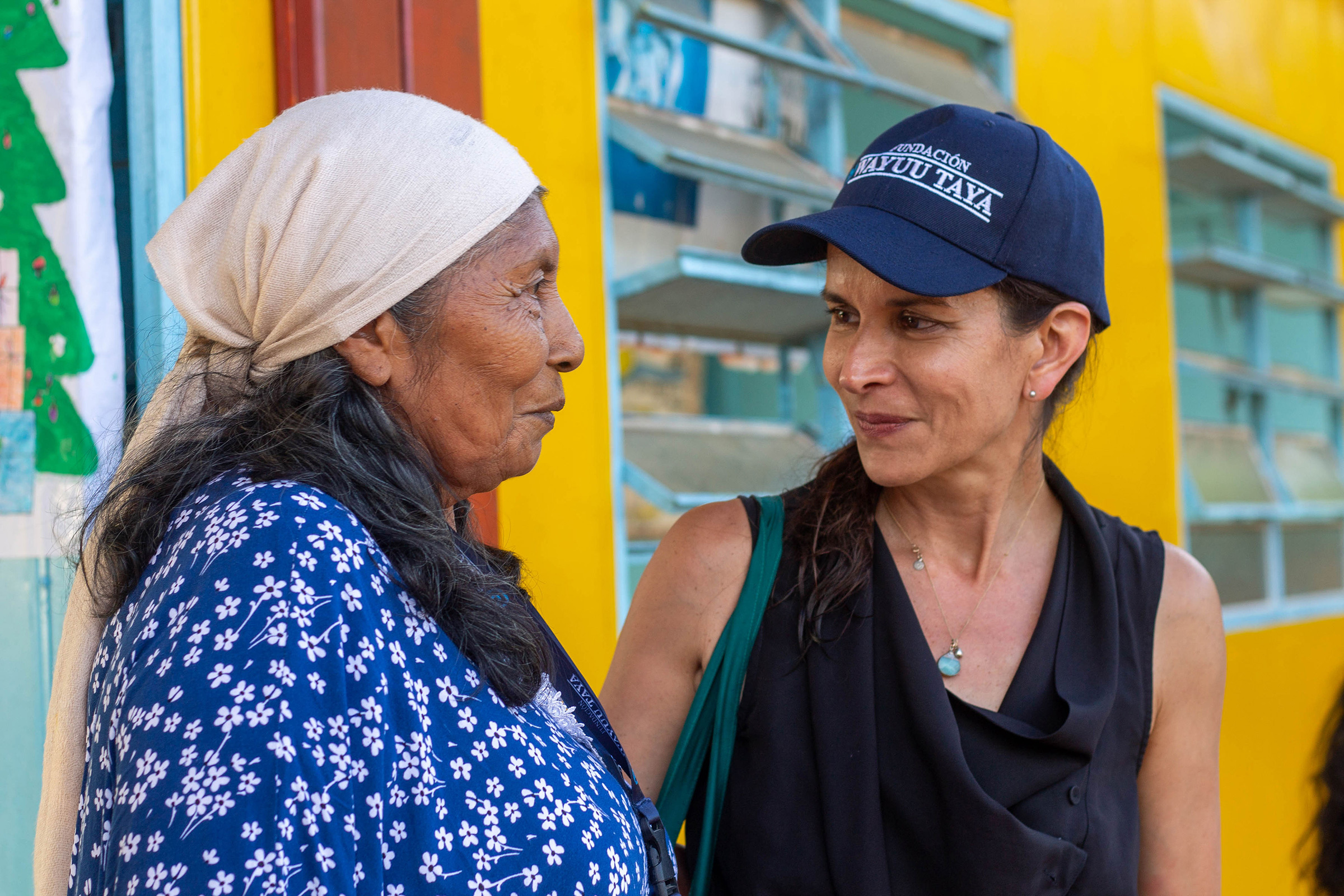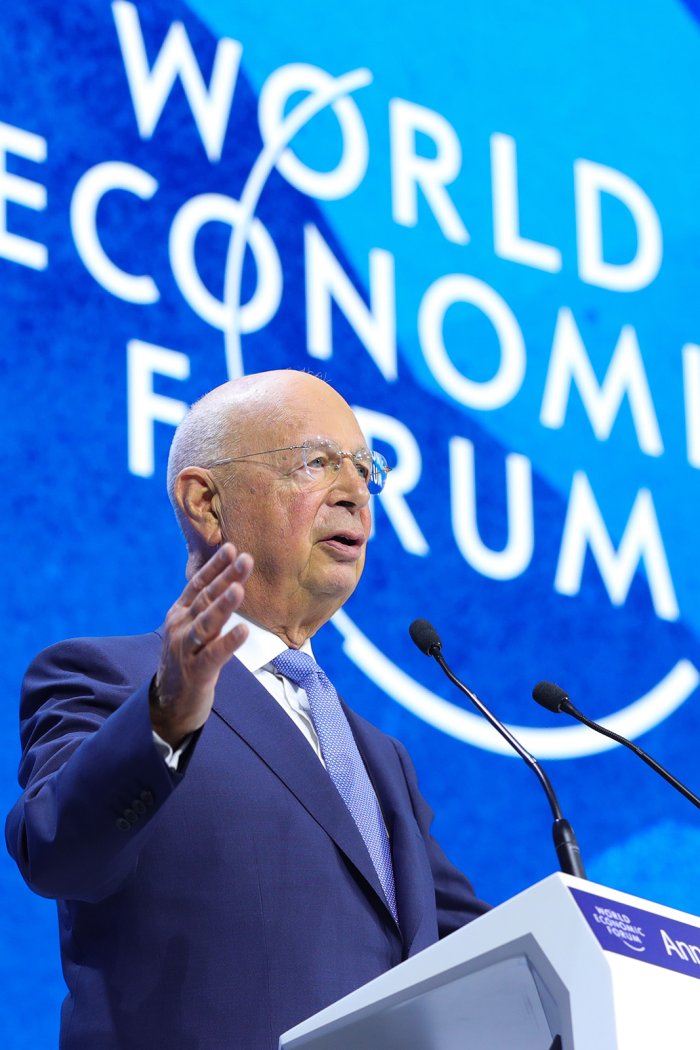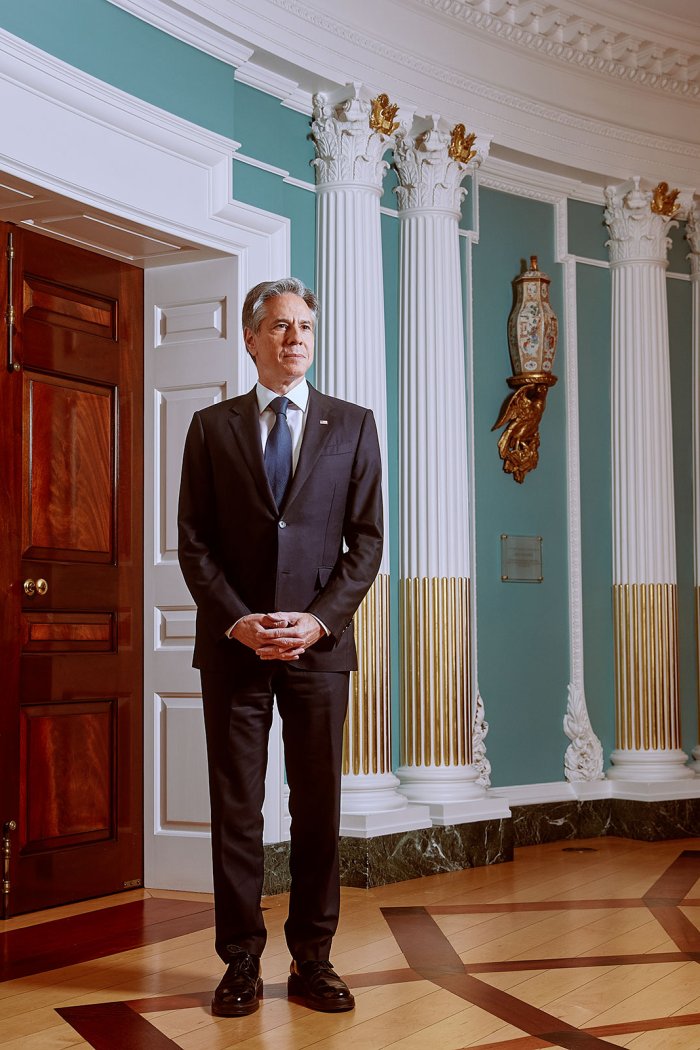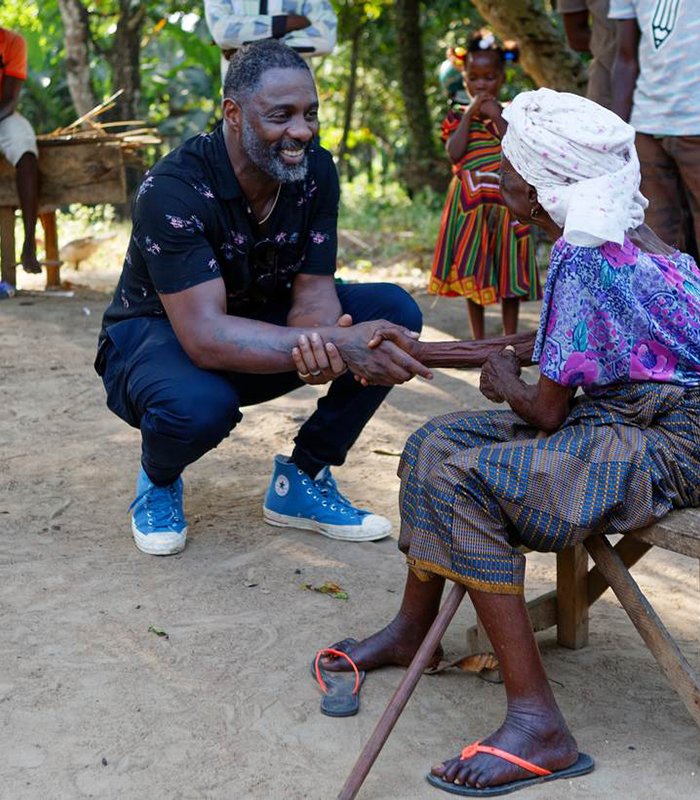There is a special sort of disdain reserved for celebrities’ charitable activities. Often scorned as vanity projects, long on intentions and PR and short on delivery, foundations are widely regarded as a phase in the VIP life cycle, coming somewhere after lifestyle product but before the children’s book. For all the organizations that become powerhouses—Sean Penn’s CORE and Bono’s ONE are well respected in their areas—just as many fail to thrive. The web address for Kanye West’s charity for arts education, Donda’s House, for example, now links to a Thai gambling site.
There are several reasons people might have suspected that Patricia Velásquez’s organization, Wayuu Taya, would be a wan effort. Velásquez was a very successful model back when supermodels were a thing, and has had a decent acting career since then, most notable for roles in The Mummy franchise, but few people have the indelible charisma of Bono or the flair for showmanship of Elton John. She’s not crazy rich; her childhood home was in such a poor neighborhood of Maracaibo, Venezuela, that she was not allowed to tell her school friends where she lived. And she takes her time; it wasn’t until she was 44, and had already had a daughter with a former partner, that she came out publicly as a lesbian.
But Velásquez, 53, who started Wayuu Taya two decades ago, has something a lot of philanthropists do not have: lineage. She is Wayuu, a member of the Indigenous group that lives in the northern tip of South America in Colombia and in Venezuela. Her mother Lidela Semprun Polanco, one of 12 children, was born among the Wayuu but was sent to Caracas by an uncle to be educated.
Velásquez doesn’t speak Wayuunaiki and hasn’t lived among the Wayuu, who are matrilineal. But she has many relatives there—it was a cousin who alerted her to the fact that one Wayuu child was dying each day, mostly from malnutrition. “Among the alijuna [non-Indigenous], I am Wayuu, so right there you have respect,” she says. “Among the Wayuu, I am someone who was from there who has no need to help but has come back to help. That’s how they see it.”
Her foundation’s ambition is modest; it wants to enhance the welfare of the 300,000 or so Wayuu who live in Venezuela, without undermining their way of life. She started by installing a water pump in one Wayuu village, then founded an elementary school for about 30 kids. At the school, children needed lunch, so the organization developed a nutritional program, which expanded to serve about 7,500 children in existing schools. As Venezuela has slipped further and further into economic and social dysfunction over 20 years, Wayuu Taya has expanded its work across the region, providing aid and building entrepreneurship, water, and agriculture programs that it estimates now reach more than 135,000 people directly and 400,000 indirectly.
Velásquez’s pitch is that every child Wayuu Taya educates and feeds lowers the likelihood that their families will be forced to join the 7 million Venezuelans—almost a quarter of the population—who have left the country in recent years. Speaking at a fancy gala in New York City, which took place in October but felt like the ’90s (Sting played guitar, Hillary Clinton took questions, Sarah McLachlan sang), Velásquez observed that it costs $1,500 annually to provide for a child in her school and enable their families to stay where they are. Meanwhile, according to New York City Mayor Eric Adams, local taxpayers are shelling out an average of $383 a night for each household of asylum seekers arriving in the city, mostly from Venezuela.
“When farmers cannot survive and pay their bills and send their kids to school, they migrate to try and find better opportunities,” says Rob Johnson, the CEO of Acceso, one of the organizations with which Wayuu Taya partners. “Then those farmers show up at borders. They show up in New York City. And like Patricia says, it becomes extremely costly for countries to manage them. But it also is a missed opportunity to let people stay where they want to stay.” Acceso provides farmers with access to markets to sell their products and buys food from local farms instead of shipping in aid. “While many schools in the country are empty, our schools and the schools we help are packed because they’re receiving food,” says Velásquez. “Many millions of people are leaving the country, but in this area that we’re caring for, they’re not leaving, because more than 100 schools are getting food from Acceso.”
Hunger is a particularly sore issue for Velásquez, whose family didn’t always have enough to eat when she was young. Her parents were both teachers, who had done stints working for UNESCO in Paris and Mexico City, but returned to a hometown in Venezuela that had become extremely poor. Education was prioritized in the household, and Velásquez was at university when a friend from the pageant circuit slipped her photo to a modeling scout, who took her to Milan. Eventually she broke into Paris, Tokyo, and New York City.
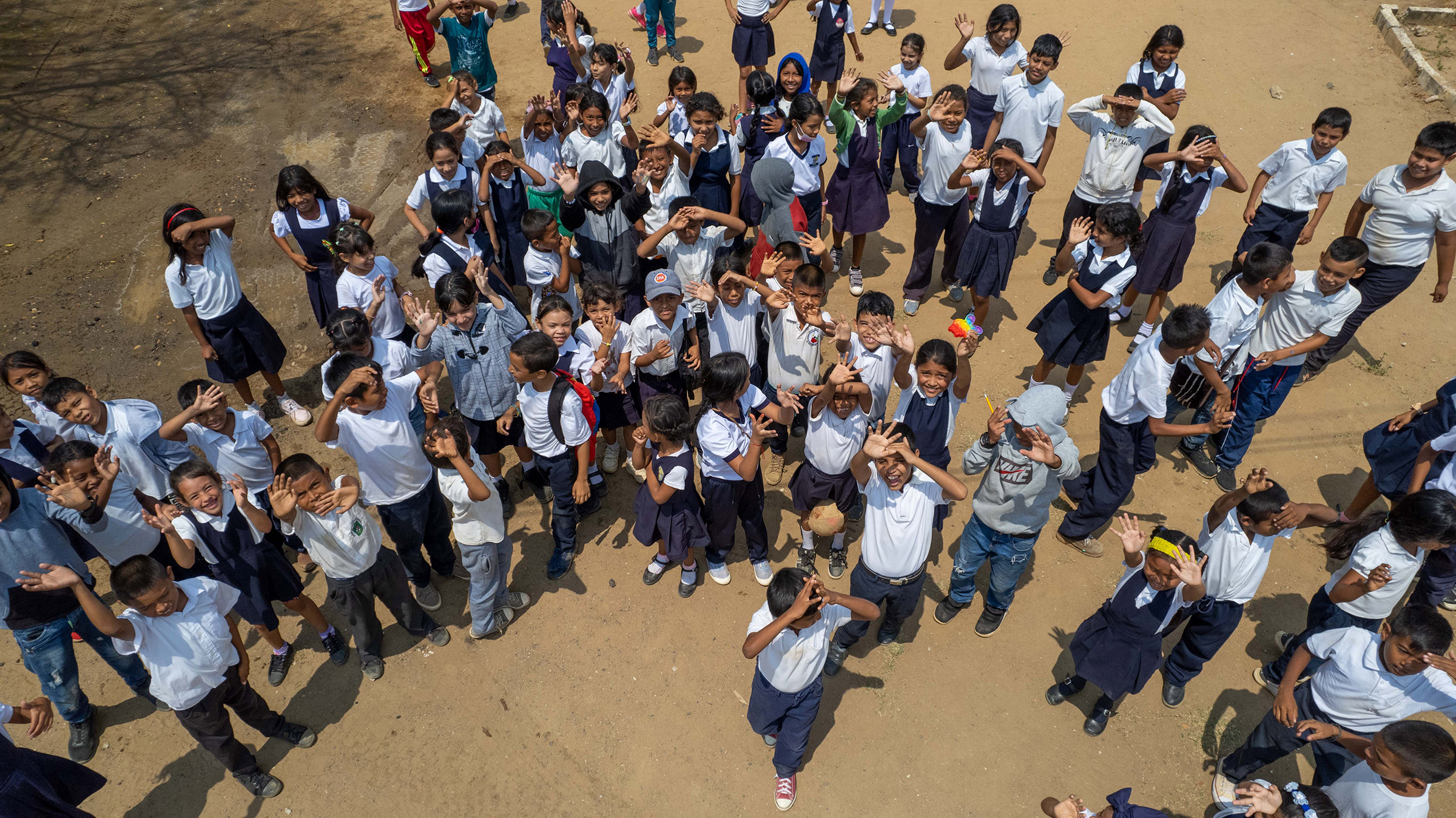
Perhaps because the organization was not founded out of a fortune, Velásquez has nearly had to shut it down several times, she says. Once was right after she was on Celebrity Apprentice, an experience she hated, in 2012. She got all her donors to chip in their annual giving for the event she organized, but her team didn’t win the challenge and all the funds she raised went to the competing charity. (She says two Trump children made donations after the show.) Four years ago, she again decided to wrap it up. “I had no money,” she says. “I was like, I can’t keep paying out more than $10,000 a month.” She had asked lawyers to draft the paperwork, but then got a call from José Andrés, the celebrity chef and food-crisis Good Samaritan. He had food on the Colombian border and asked if she could distribute it on the Venezuelan side. She agreed.
Through Andrés she met the Clintons, and through the Clinton Foundation she met other big donors and institutions eager to work with somebody who had credibility on the ground in Venezuela, but who also understood major donors’ appetites for accountability and governance. Wayuu Taya has an annual operating budget of less than $700,000 but has deals with such organizations as Acceso, Direct Relief for medicine, and the Center for Disaster Philanthropy for emergency funds. These partnerships mean Velásquez can use the money Wayuu Taya raises to hire local employees, thus addressing one of the lingering questions of aid organizations, says Acceso’s Johnson: “How do we activate local communities, rather than bring in foreign officers, to get this stuff done?” Most recently she has helped set up a local water-supply business, bought two farms, and brought Gustavo Dudamel’s legendary El Sistema musical organization to Wayuu schools.
Because of the trust locals place in a fellow Wayuu, Velásquez is able to work nimbly and efficiently, in ways that bigger organizations often can’t. More than 80% of her staff are Indigenous, an arrangement that offers employment opportunities and also clears all sorts of barriers. “In 2020, Direct Relief sent us $123,161 worth of medicine and supplies,” says Velásquez. “We distributed it; it was easy. And then they sent us another one, and another one.” When the donations reached $3 million, Wayuu Taya got together with fellow medicine recipient Acción Solidaria. “We literally just made a map,” says Velásquez. “We said, ‘Where are you not going?’ And they were like, ‘We haven’t been able to go to the Amazon, we haven’t been able to go to Margarita Island.’ We have so many connections, we told them we could get there.”
But sometimes being committed to the Wayuu way of doing things has made helping more complicated. It means, for example, that when children are sick and the local shaman suggests a cure, her team treads lightly. “At what point do you come in and say, ‘I have all this medicine from Direct Relief, and I know that this medicine can cure you?’” she asks. In some cases, she says, she hasn’t been able to save people she could have. “First you have to create trust with them. ‘I’m not going to come here and change your culture or change your beliefs, I’m going to work with you. And when you trust me, we can then do it together.’”
Velásquez also has concerns about some Wayuu traditions, including encierro, a sometimes yearslong confinement of girls when they start to menstruate. But she feels teaching, rather than defunding, is the best form of cultural change. “Education is the key,” she says. Once she began getting food from Acceso, and distributing it at rural schools, enrollment at those schools went up and stayed high. “By helping these schools with other programs, we are creating thinkers, not only among the kids but the mothers,” she says. “They become thinkers and question themselves.”
Indigenous people are survivors, Velásquez points out. “It doesn’t matter how many wars are out there, how many cultures have disappeared, Indigenous communities have managed to remain,” she says. “There is a strength and a belief system in Indigenous communities that I think is very important to maintain.” •
- Cybersecurity Experts Are Sounding the Alarm on DOGE
- Meet the 2025 Women of the Year
- The Harsh Truth About Disability Inclusion
- Why Do More Young Adults Have Cancer?
- Colman Domingo Leads With Radical Love
- How to Get Better at Doing Things Alone
- Michelle Zauner Stares Down the Darkness
